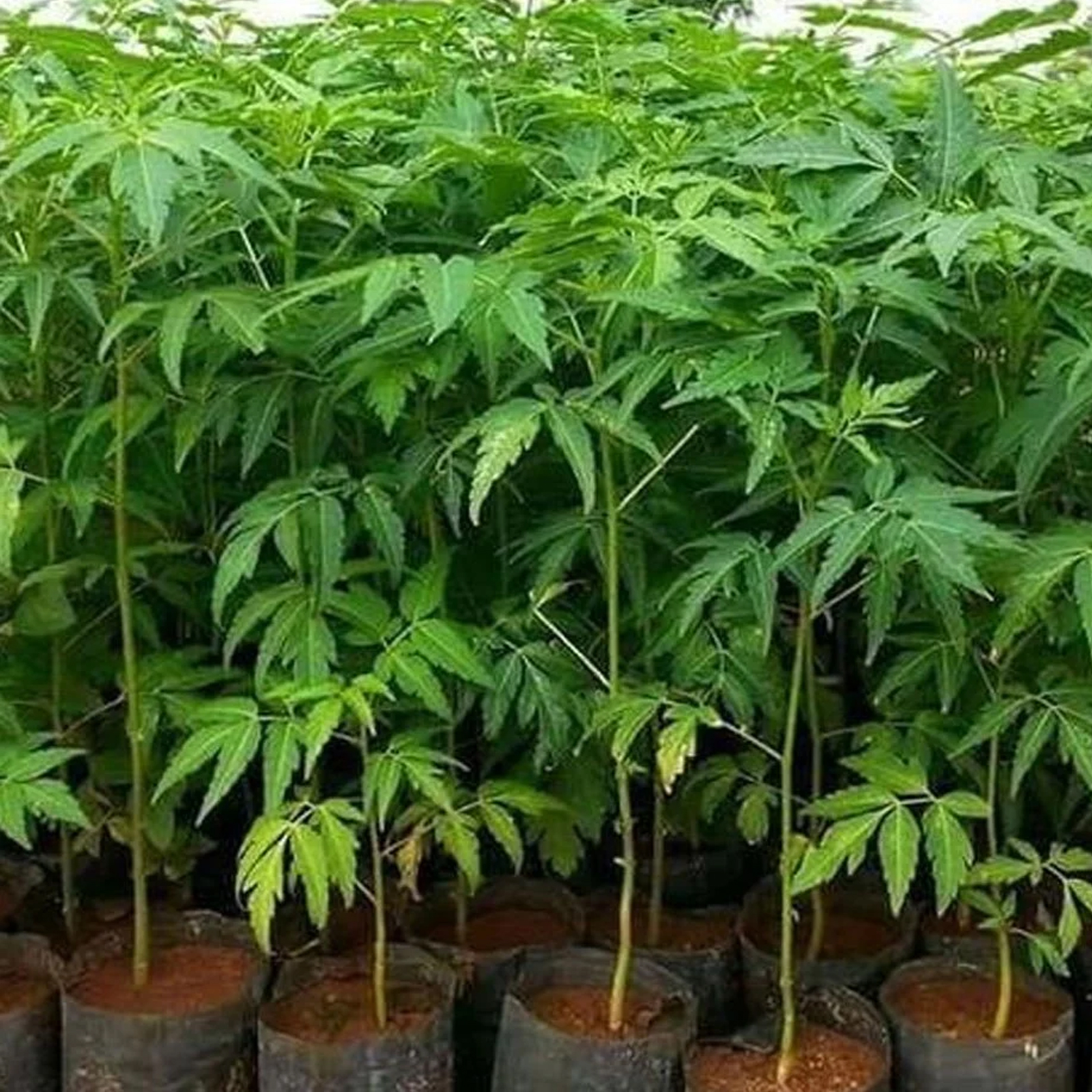
Melia Dubia, also known as Malabar Neem, is a fast-growing tree species native to India, widely used in agroforestry and timber production. It is favored for its ability to grow quickly in a variety of climates and soil conditions, making it an ideal choice for sustainable forestry practices. With a rapid growth rate and high yield, Melia Dubia is particularly suited for commercial timber and paper industries.
Uses and Benefits
Timber Production: Melia Dubia is widely used in the timber industry for producing plywood, particle boards, and veneer. Its wood is light yet strong, making it suitable for a variety of construction purposes, including furniture, cabinetry, and interior finishes.Agroforestry: The fast-growing nature of Melia Dubia makes it an excellent species for agroforestry, where it can be intercropped with other agricultural crops. The tree provides shade, improves soil quality, and helps in carbon sequestration.
Paper and Pulp Industry: Due to its high cellulose content, Melia Dubia is also extensively used in the paper and pulp industry. Its softwood fibers are ideal for making high-quality paper products, reducing the reliance on traditional tree species.
Renewable Energy: Melia Dubia wood is an efficient source of biomass for generating renewable energy. It can be used in biomass power plants or as a biofuel source in rural areas.
Cultivation
Melia Dubia thrives in tropical and subtropical climates, requiring well-drained soils with moderate fertility. It is drought-tolerant and can adapt to varying soil types, including sandy, loamy, and clay soils. The tree is typically grown from seeds or cuttings and requires minimal maintenance after the initial establishment period.
It is commonly grown in India’s southern and central regions, including Tamil Nadu, Karnataka, and Andhra Pradesh. With proper care and cultivation, Melia Dubia can grow up to 10-15 meters in just 3 to 4 years, making it one of the fastest-growing commercial tree species available.
Harvesting and Processing
Melia Dubia trees are typically ready for harvesting within 6 to 8 years of planting. The wood is lightweight yet durable, with a uniform grain structure that makes it easy to process into timber, plywood, and other wood products. After harvesting, the wood is dried and processed into various commercial forms.
Market Demand
Due to its rapid growth and versatile applications, the demand for Melia Dubia is consistently rising in both domestic and international markets. It plays a crucial role in reducing pressure on traditional forests, providing a sustainable alternative for industries reliant on timber and biomass.
Farmers and growers benefit from cultivating Melia Dubia because of its low-maintenance requirements and the high returns it offers. With growing awareness around sustainable forestry, the tree has become an important crop for eco-friendly agroforestry practices.

